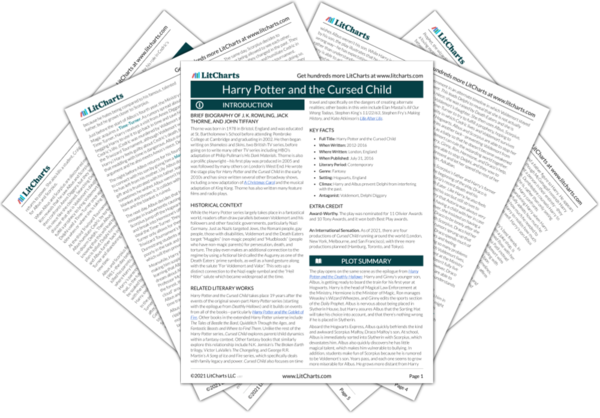Just after Harry grapples with his relationship with Dumbledore, Draco explains his own issues with his father not seeing him for who he was as well. This again reinforces the problems with parent-child relationships in which children don’t feel fully understood, but it also shows how Draco and Harry are both still affected by their childhood traumas in a way that has made it difficult for them to work through their relationships with their sons, underscoring the problems with focusing on the past at the expense of the present. This obsession with the past is only underscored by the symbol of the Time-Turner. And yet, now, Harry and Draco have begun to be open and honest with each other, to act as allies if not friends, and to gain strength from that bond.


